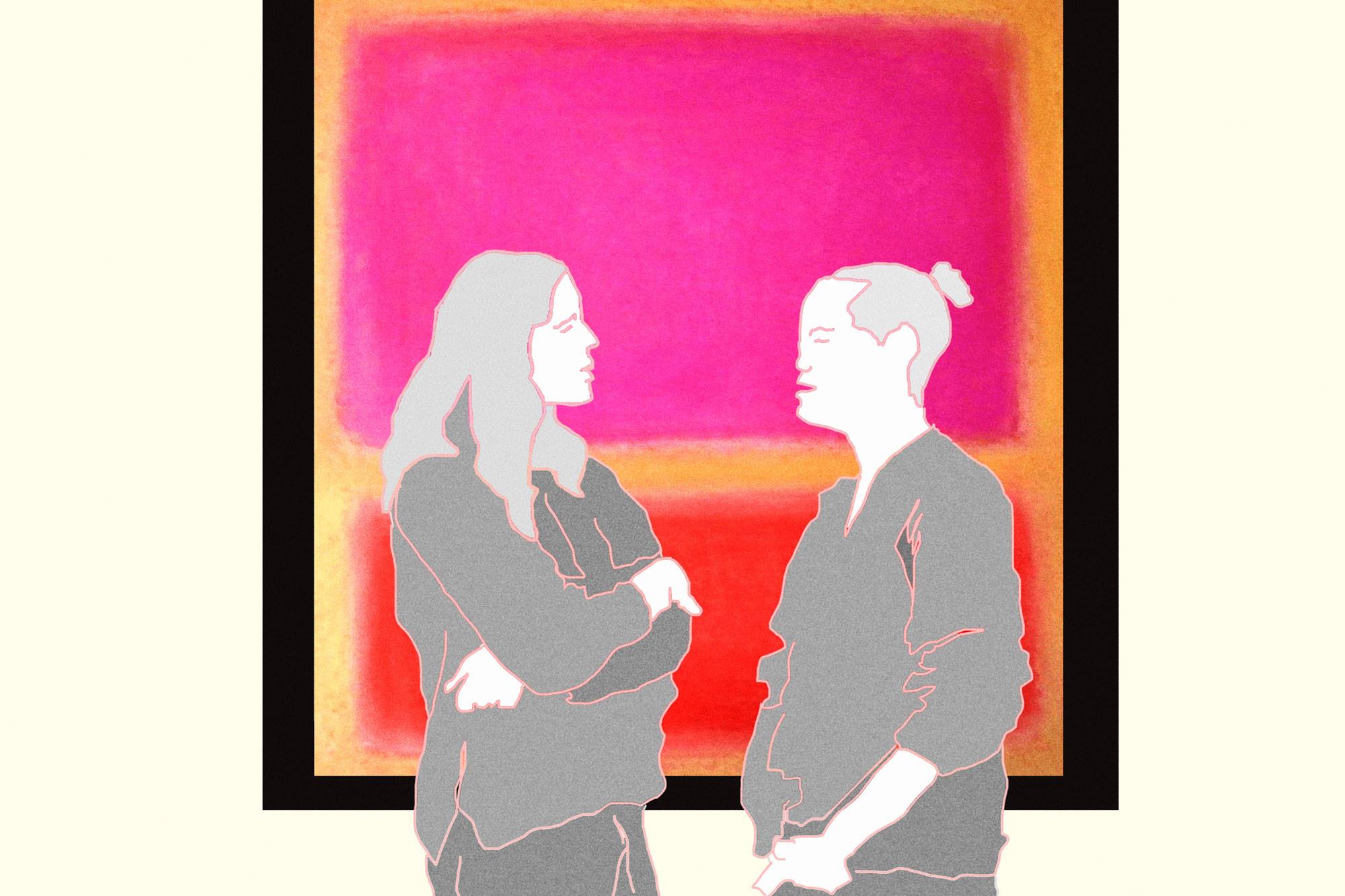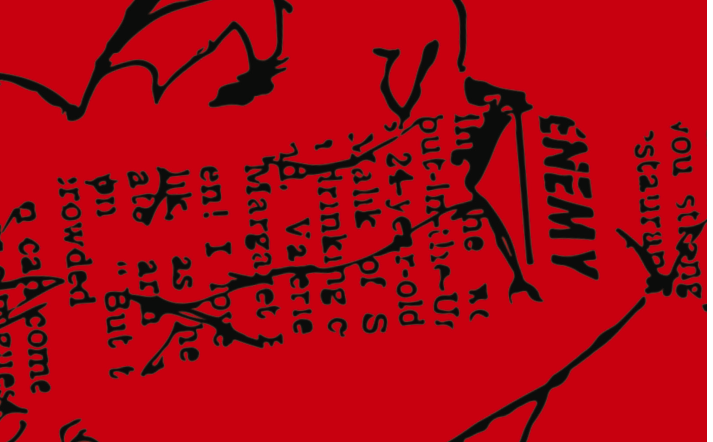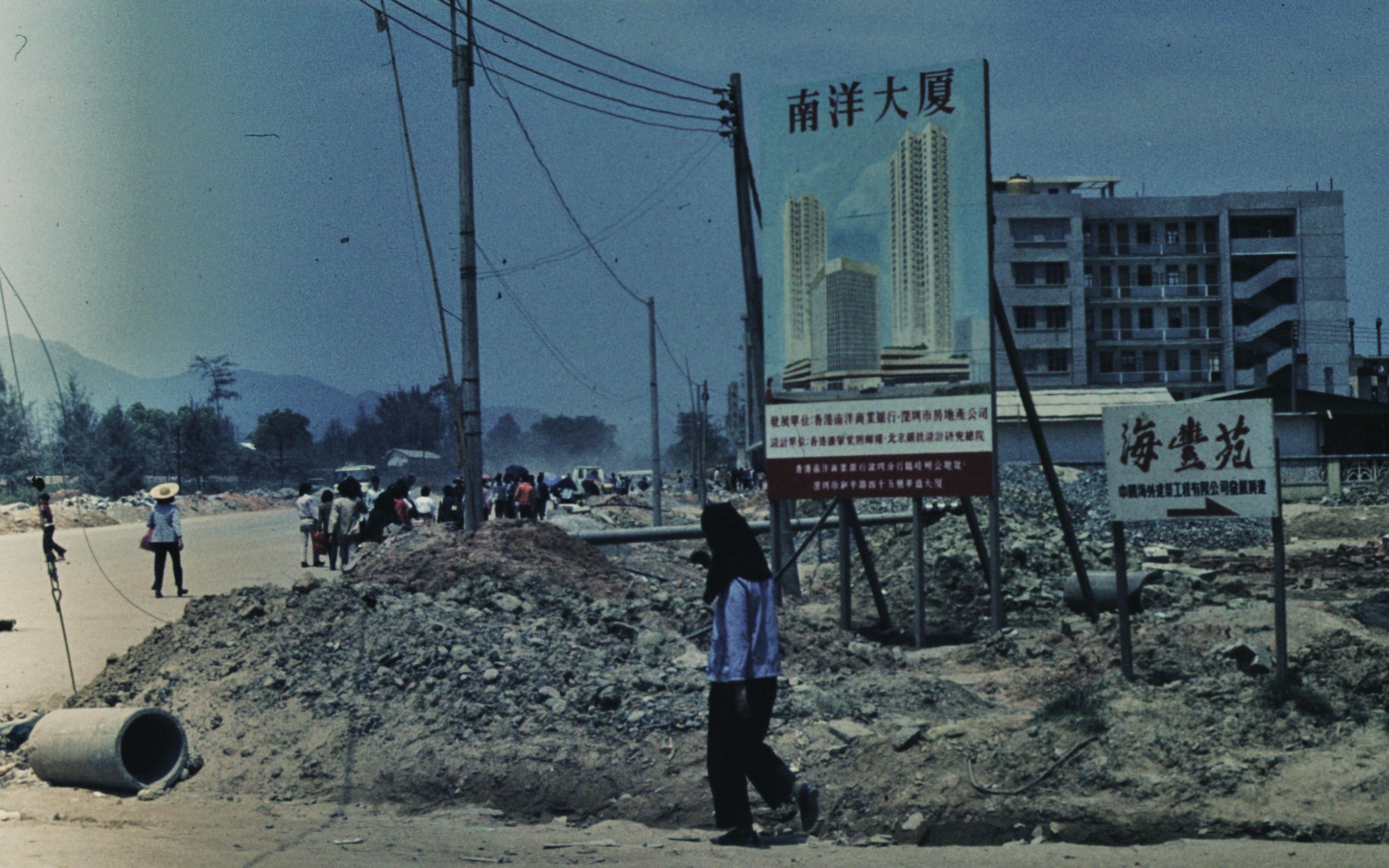
Poetry
The hired car rolls, wriggling down south along the river, away from the colonial glamour of the Bund (among which is gemmed their hotel: young, alcoholic, cosmopolitan), towards, now visible in quiet prominence, the PSA, with its clean geometry: concrete box & long line of a smokestack, sticking up like a straw.
To art…To art.
(PSA: Power Station of Art. est. 2012, Shanghai. formerly power station, now contemporary art museum.)
The late winter morning is filmy, the damp chill of the city patted dry a little by the clean (unsmogged) sun.
(PSA: Politically Sensitive Annotation. Before moving on, we must be prepared: there are certain elements that cannot be dispensed with for this story. e.g. a rather unrelenting gender dichotomy, some tangy regressive stereotypes, plus, a bit of extra-textorial self-indulgence,)
Let’s give them names. The syllables of a lover’s name are all too vital.
Mona, her name must be Mona. Like the Moon, like Mona Lisa, tender, hazy, with innocuous tact.
Mikey, his name must be Mikey. Like Michelangelo, like Mickey Mouse, contradictory, practical, with common charm.
As he takes her coat, for the first time today he notices her — what word should I choose — outfit. It’s a watered-down version of the latest fad in the social strata: casual, street, discreetlystamped with designer brands.
Mona returns his pensive gaze with a smile. Mikey holds out his hand; she puts hers in it. Her hand is a bit too cold; Mikey wonders if it’s iron deficiency, or too many gym classes, or too little sunlight.
‘I’ve always liked it here.’ Her voice is of the familiar sophistication of the modern art amateur, tight-throated, high-pitched, a little artificial.
Here, there are rooms to drift from one to one, where shall we start?
Room one: a white square box with a huge heap of garbage in the middle. On one side, a cluster of barbed wire; on the other, a small TV screen pinned to the wall, streaming a gray video.
‘The artist is a friend of mine,’ he remarks, ‘quite a personality.’
‘How do you like his work?’
‘The market likes it.’
‘And you like the market.’
‘I do. Democracy for art.’
‘Or rather, money for art, art for money.’
‘Oh, of course I like money.’ Mikey smiles, a shimmer of poised irony on his lips.
She knows well the materialism. Materialism in Mikey puts her at ease. She becomes dimly aware of (tugs a little at) the shoulder strap of her costly handbag, as if it’s an illicit child that he would accommodatingly adopt — if it ever comes to that.
Mona loves that poised irony too much, so she stay silent — does not disturb — and retrieves her hand, moving towards the TV screen.
(PSA: Public Service Announcement. 2018, anonymous, ft. rainy telephone calls, housewives, schoolgirls. Japanese. translation missing.)
‘I like it.’ Mona says, sensing Mikey approaching behind her back. She turns around; rocks a little on her toes.
‘It is interesting; what do you think it means?’
‘Means nothing.’ She shrugs, then floats away.
(The meaning is carefully preserved in a block of hardened, clay-like mixture of sounds and images, for her to later toy with on sleepless nights, lying beside — who?)
‘How are the children?’ He catches up, the image of sad little Japanese schoolgirls on his retina.
‘Why does everyone always ask about the children?(!)’
He flushes a little over the clumsy question; he must remember that she doesn’t like to be treated like a mother.
‘I wish I never had them.’
‘They are too real for you.’
‘Yes, too real. I don’t like sharing my bed with them.’ (Only with you.)
‘You don’t like anything too real.’ (Including me.)
‘Surely you understand, that’s why we’re here.’ Mona puckers her lips towards the eerie greenish glow leaking in from the next room, signalling him to move on.
Room two: the glow comes from an assembly of gigantic glass test tubes, with obscure botanical names pasted to their sides and obscurer, fresh, colourful liquid circulating inside.
‘Flow’, the word pops into his mind instantly: the yoga studio his wife goes to on Mondays; the ecstatic mental state of high concentration; the literature of sensuous and energetic writers…Themaddening continuity of time.
‘Spend the weekend with me.’
‘No, my husband will be back.’
‘How does that matter now?’
(She is trying to find the right angle to take a picture of the installation, and does not answer.)
(He is thinking ‘all museums should ban photography every other day’, but this is left unsaid.)
Mikey’s poised irony again: ‘You paid for the hotel room with his money.’
She stares at those lips awhile, ‘Would you want a kiss?’
‘Not in public.’ He hastens to add, ’Would you want a picture?’
‘Yes, take a bunch!’
He takes her phone, and with a proficiency parallel to her shifting poses, takes pictures of Mona & modern art.
The best of these would later go on her social media, for which he would not take any credit.
Room three, room four, room… The museum is sparsely populated on a Friday morning. Scattered here and there are art students with slack clothes and canvas bags; some foreign expatriates with leisurely work and good pay; social media influencers who look all the same (copy & paste plastic surgery, cosmetics, etc). Age bracket twenty to thirty-five, probably all dwelling in the same coffee-scented and gym-clustered quarters of the city.
Mikey and Mona glide from room to room in silence, like footless figures in plump-costumed period drama (not the Marie Antoinette kind, the Russian Ark kind).
Meanwhile the objects in the frame have become more and more defined. Green light has given way to earthy compositions, as if reversing a melting process — all that’s solid melts into air but vice versa — a little Marxist, like all of us. At any rate, I digress — we have arrived at sculpture.
Curious how, as an architect, Mikey only has a bitter and sour feeling towards sculpture. Perhaps when it comes to dimensions, he prefers less to more. The fourth, temporal dimension is no doubt malevolent (to be or not to be?); the third dimension is a constraint (where are the Aristotelian Absolutes?); two-dimensional mediums, like painting, would suit him much better; and then a line, most seductive, and then a point, completely enchanting…
He remembers telling Mona over half-filled glasses of wine that he has always wanted to be a painter. Mona briskly replied, as she licked the French sauce on her table knife in a particular, carefree Mona manner, ‘Paint!’
Then his thoughts drift to what she told him, in exchange, of her various endeavours: some half-hearted years of college, an online jewellery brand, a travel magazine, a cat sent away after two weeks. Her husband has long insulated her from the rotten world of work; adding extra paddings with good cash, all against the malign murmurs of Money.
(PSA: Profound & Sincere Apologies — from all family members to all family matters, what tawdry affairs, as you can see.)
— But no matter now:
‘You know,’ he is conscious of his pretentiously bland monotone, ‘Architecture is erection.’
She is a sculpture among the sculpture of all sorts of protrusion, prostration, prostitution: sombre, lewd, self-conscious. She is very pretty; he’s terribly ashamed that he cannot unsee that. Her prettiness alienates him from his private assertion: that his mind operates above the wretched mechanisms of sexual attraction — a pathetic mesh of biological impulses & commercial conditioning. (He keeps wondering, who would it have been, if not her?)
She doesn’t respond. He has to continue then: ‘Why is modern art so sexual?’
‘Ah, because life is horribly dreary.’
‘Your life is particularly dreary.’
‘It’s too hard! Much too hard to find anyone interesting!’
‘What about your friends?’
‘Oh, my friends are… There’s too much we cannot talk…’
‘Again, are too real.’ (Have you ever noticed, finishing another person’s sentence is wickedly endearing?)
‘You understand.’ She’s trying to decipher the ugly knot of water pipes in front of her.
‘You married too early.’
‘And yourself.’
‘Well, maybe we’ll get married.’
‘You wouldn’t like that!’ She chuckles.
‘I love the city, do you know why?’
‘I do.’
‘I don’t belong to it, neither do you. That’s the only reason I belong to you.’ (Of course I don’t, but you know what I mean.)
‘…Quite.’
(This is one of those moments, the characters in the drama are quite aware of the dramatics of the dialogue.)
Architecture as erection? Surely, the skyscrapers are rather patriarchal, him too, he’s patriarchal with more lucidity than most of them — Mona hasn’t decided whether that’s a good thing, perhaps she never will. A tiny indulgent curvature softens her eyes, as she now thinks of how bad he was the first time they had sex.
Once, after a long night of cakes & ale, Mikey commented abruptly: ‘I’d like to sleep with other people, but I wouldn’t like you to do the same.’
‘Ah, I understand.’
Then they left it at that.
Understand — that it is too chaotic of a world, too precious of a sordid affair, to take it seriously.
‘Open relationship’, Mona now holds the phrase before her mind’s eye, evoking faces of her children, her mother-in-law (a witch), her cat, her father… Then a sudden disgust drenches her. Like all of them, Mikey is another cage, perhaps only more so with his open talk. What about, I’d like an open relationship with money? …Then she feels his arm around her waist. (She’s daydreaming; better lead her on.)
Room nine. After a dark entrance, presently they stand under a pulsing heart: a light bulb, hanging from the rising depths of the smokestack, flicking on and off, synchronised to a low, leaden, pounding soundtrack of heartbeats. The artist recorded his own pulse (it’s such, dare I comment, awful imagination and awful ego!).
They felt like parasites in the heart chamber of a dumb giant. It’s suffocating. (Curious — is it romantic for a pair of lovers to tune into the same heart rhythm — of someone else?)
All sense of time is lost under the despotic regularity of the beat. After a while (a minute, an hour, a millennium), Mona fidgets a little: ‘Shall we get out of here?’
How surprisingly easy it is…to walk out of a nocturnal heart surviving on a mad bulb.
(Outside is the sumptuous languor of a rivered city, herbal fragrance of well-groomed prosperity; & the wide-eyed ambush of jagged reality. Bear with me an irresistible final sentimentality: outsider than outside, is the real dumb giant. Our dear rivered culture, herbal and jagged, running as far back as one can lament.) ∎
Words by Niuniu Zhao. Illustration by Antonio Perricone.







